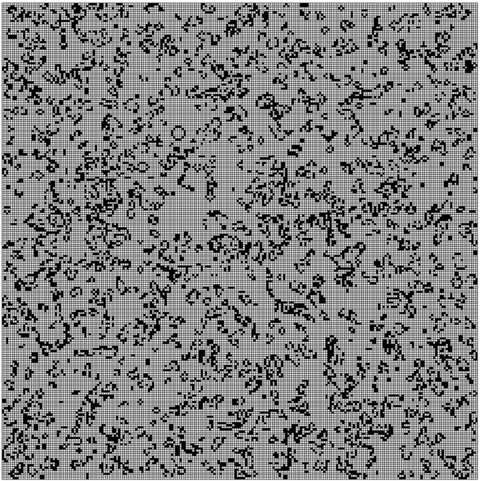I played with that problem and had 4 processes spawn 10 processes spawn 10 processes spawn 10 processes, etc, to spawn 40K processes.
It is fast, but not that much faster than spawning them sequentially. And if you do that then I don’t know how you could supervise those processes.
For better synchronization I would pick a timestamp 3 seconds in the future, spawn all processes sequentially and have them wait that precise timestamp to start the logic in sync.
Here is my test code:
defmodule Serv do
use GenServer
def start_nolink(id, parent) do
GenServer.start(__MODULE__, {id, parent})
end
def init({id, parent}) do
Process.link(parent)
send(parent, {:started, id})
{:ok, id}
end
end
defmodule Spawner do
def rec_spawn(parent, scheme) do
rec_spawn(parent, scheme, 0)
end
defp rec_spawn(parent, [], sum) do
Serv.start_nolink(sum, parent)
end
defp rec_spawn(parent, [range | ranges], sum) do
sum = sum * 10
starter = fn -> Enum.map(range, &rec_spawn(parent, ranges, sum + &1)) end
spawn(starter)
end
end
defmodule Control do
def check_started(max) do
_check_started(max + 1)
end
defp _check_started(max) do
case Process.info(self(), :message_queue_len) do
{:message_queue_len, ^max} ->
IO.puts("all started OK")
flush_all()
{:message_queue_len, n} when n < max ->
IO.puts("started #{n}/#{max}")
Process.sleep(100)
_check_started(max)
end
end
defp flush_all() do
receive do
{:started, _} ->
flush_all()
after
0 -> :ok
end
end
def sum_ranges(ranges) do
{sum, _} =
List.foldr(ranges, {0, 1}, fn range, {sum, size} ->
{sum + Enum.max(range) * size, size * 10}
end)
sum
end
end
ranges = [0..3, 0..9, 0..9, 0..9, 0..9]
parent = self()
Spawner.rec_spawn(parent, ranges)
ranges
|> Control.sum_ranges()
|> Control.check_started()


 I decided on using the sequential version now, but thank you anyway
I decided on using the sequential version now, but thank you anyway 
























